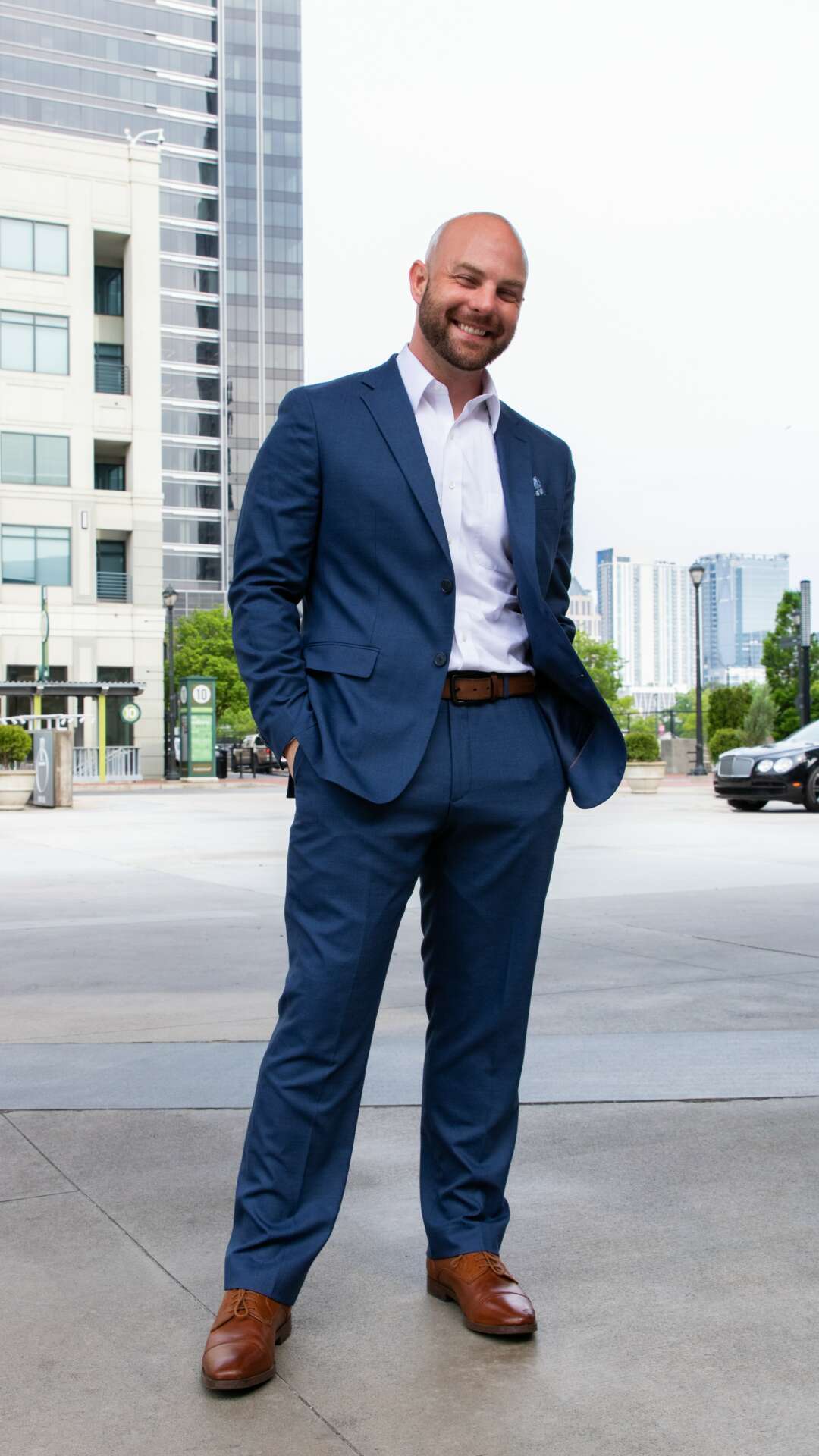We caught up with the brilliant and insightful Zack Knight a few weeks ago and have shared our conversation below.
Zack, thanks for taking the time to share your stories with us today Let’s start with the story of your mission. What should we know?
I’m releasing a book on Veterans Day that highlights the Legacy of Love: a Journey of Self-Mastery. My story is one similar to many veterans and to many people, we forget to love ourselves while we grind and drive hard to succeed.
I remember as a teenager really having a mindset of
wanting to protect everyone around me. Every single
fight I got in was in the defense of another. If I saw a
bully, I fought the bully with passion and rage for
picking on the vulnerable one. As I got older, Thisthis
need to save people almost came with a level of
negativity attached where I was overly invested in saving
those around me. I too often took the weight of
someone else on my shoulders and carried it for them
and never even asked if they were carrying it
themselves. Or if they even wanted to carry it in general,
heck most of the time I saw a problem and never even
asked if it was a problem for the person. For many
years, my “why” was to help those that can’t or won’t
help themselves. The “won’t” part is where I struggled
the most. As you’ll see, I never thought about stopping
long enough to help myself. I believed I could save
myself by saving others. As I describe these stories,
keep in mind that I did end up saving myself and you
can too. Don’t feel defeated during this book thinking
there isn’t a way to get out of your hole and instead
realize, this is not only my journey of self-mastery but
also my journey of redemption and self-preservation.
One of the most eye openingeye-opening experiences
for me came when I attended the Dale Carnegie
Institute here in Atlanta and learned about how
sometimes the best leaders know when to be the first
follower. I unfortunately took that lesson too far
without understanding the dichotomy of still
maintaining myself as a leader. I took that lesson to give
myself an excuse to never be in the forefront, to never
be the one making the decision, the final decision, no
matter how much authority or powerdecision making
ability I had in my professional career. Beyond that, that
mentality fed into my personal mindset, blended with
helping those who won’t help themselves I became a
guy that was happy just sitting in the dark next to
someone who was choosing misery. I allowed myself to
be overshadowed and not heard so that I couldn’t be
responsible for failing any more. I chose to be the first
follower, “your best number 2” as I consistently stated,
so that I didn’t have to show who I was any more.
Let me explain more about this lesson from Dale
Carnegie, I truly do believe it’s a good one, if you apply
it properly.
Image you (and this is an actual video in the YouTube
world somewhere) are at a concert in the middle of a
field. You’re hanging out and having a good time laying
on a blanked, much like all of those around you.
Suddenly, one guy gets up in the middle of the field and
starts dancing like no one is watching. Literally not a
care in the world but you hear murmurs around you of
people laughing as the silly drunk guy. You know all of
the joke, yep, he’s had one too many. Soon, most of
those around you have their attention fixed on him and
they’re all laughing. Then, one other guy gets up and
starts to boogey with him, now there are two drunk
guys. But that’s all it takes to start a movement, two
people. Suddenly, the murmurs and giggles turn to, hey
lets go and the two drunk guys become a raging crowd
of dancing people without a care in the world and
everyone is simply having a blast.
Now, Dale Carnegie tells this story to highlight the
power of a leader and a follower. Which one in that
story is the leader and which is the follower? What
turned the tides of jokes about a drunk guy into a giant
crowd of fun? How Carnegie highlights this, the true
leader of this movement isn’t the first guy but instead
the second guy, the leader who decided to be a follower
just long enough to start a movement. However, and
this is the part I always missed, none of it would have
happened without the courage of the first guy. So which
one is the leader and which one is the follower?
Sometimes, the best leaders know when to play either
or both roles. I talk about this later when I describe my
time in the military, I had to be the leader but also
understand when being the leader meant being a
follower as well.
I want you to think about a time in your life where you
were the first person or the second person, or where
you neither but always craved to be. Maybe my stories
about police and military and the things I’ve endured
aren’t your story. Maybe you find them hard to relate to
at times because “you haven’t gone through something
so traumatic”. I urge you to think about different areas
of your life where you have gone through something or
you have felt similar feelings and reflect on those
moments as you read more of my journey. One thing I
promise is that I will share those feelings and describe
as best as I can, the things I was struggling with in those
moments. Maybe you weren’t in a warzone being shot
at but maybe you have been in a boardroom taking a
verbal beating from a boss in front of people. Or, you
saw that happening and didn’t take a stand against your
boss. What happens in those situations when someone
takes a stand, does everyone else shy away when that
person is being the protector, or do people form an overall shield. The leader may be left there to take the
angry attention alone, or the first follower joins and
creates a crowd of people unified together.
I’m not really sure when this mentality took over for me
and I stopped really being a leader. I don’t know if it
was after the first marriage failed and I took sole
responsibility, no matter how physically and verbally
abusive she was but since “I’m a man”, it’s just my job
to accept it. I followed along. Maybe it started in the
military, when I felt older and lesser than those around
me. I kept being told how I would fail and was too fat
and too slow and they would make sure I never
succeeded. I don’t remember having this struggle while
I was in law enforcement and I’ve had trouble
narrowing the window of when I first started hiding in
the shadows, refusing to be seen. It could be that I was
simply in blissful ignorance to the things happening
around me. Maybe I allowed myself to take the excuses
presented to justify why I wasn’t accomplishing my
goals because I felt like I didn’t deserve them.
I think there is a point in all of our lives where we
suddenly shift. I don’t believe it’s just one moment and
BAM, we aren’t in alignment anymore. I think there was
conditioning over the years from overly aggressive
bosses or spouses or parents, whomever affected you.
Maybe it was all of them, that forced us to shift.
Overall, human beings are quite an adaptive species, we
tend to evolve ourselves to fit in or be part of the cool
kids or just to feel accepted. And maybe that’s a big part
of it, maybe I never truly felt accepted. But also, maybe
I put myself in those uncomfortable places to force
myself to grow.
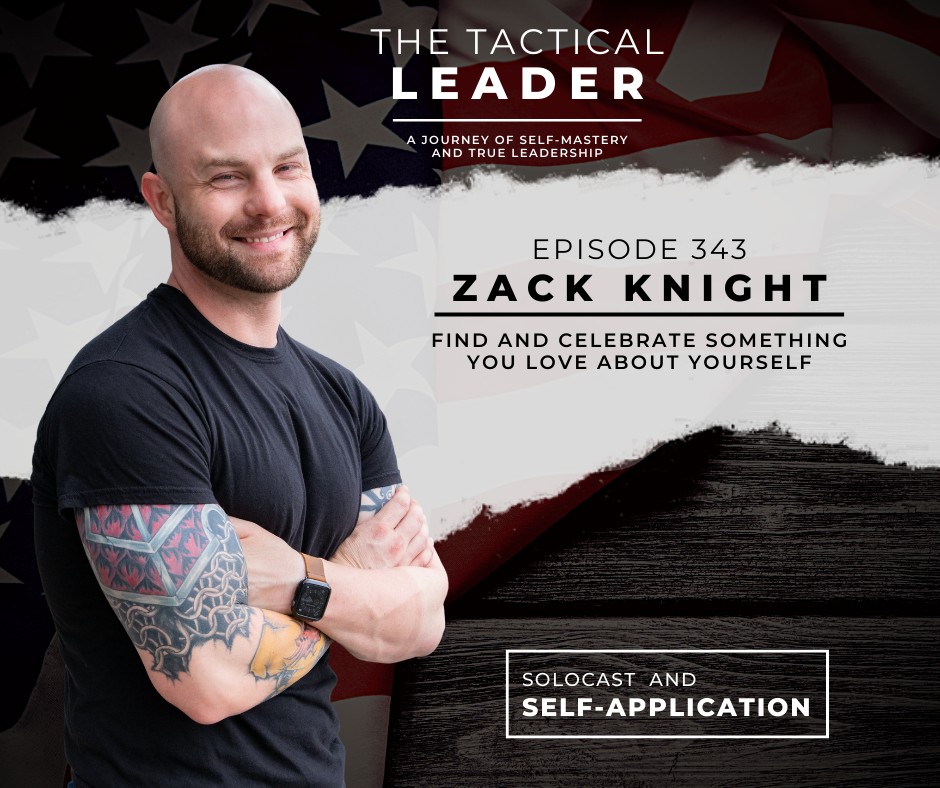
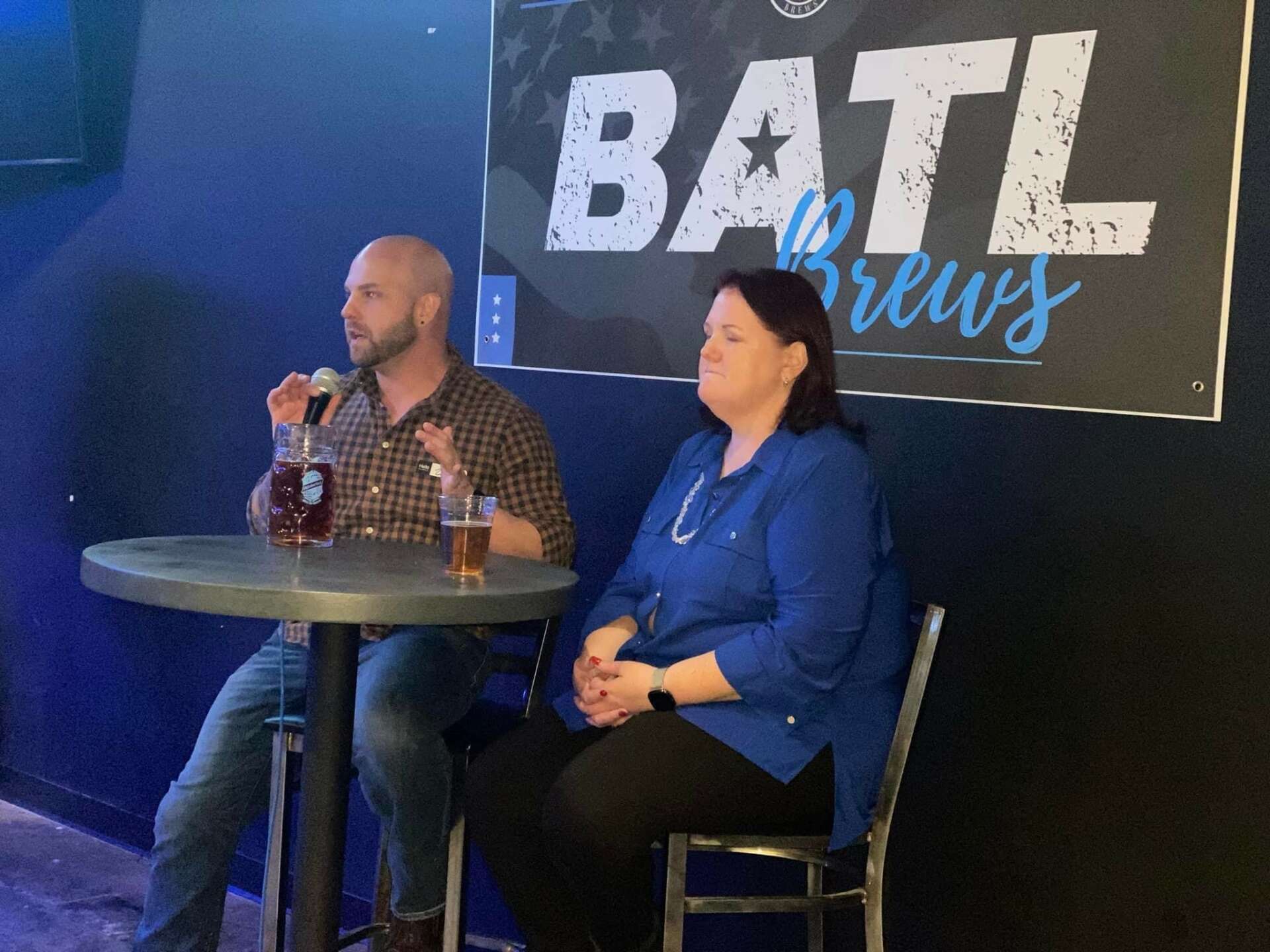
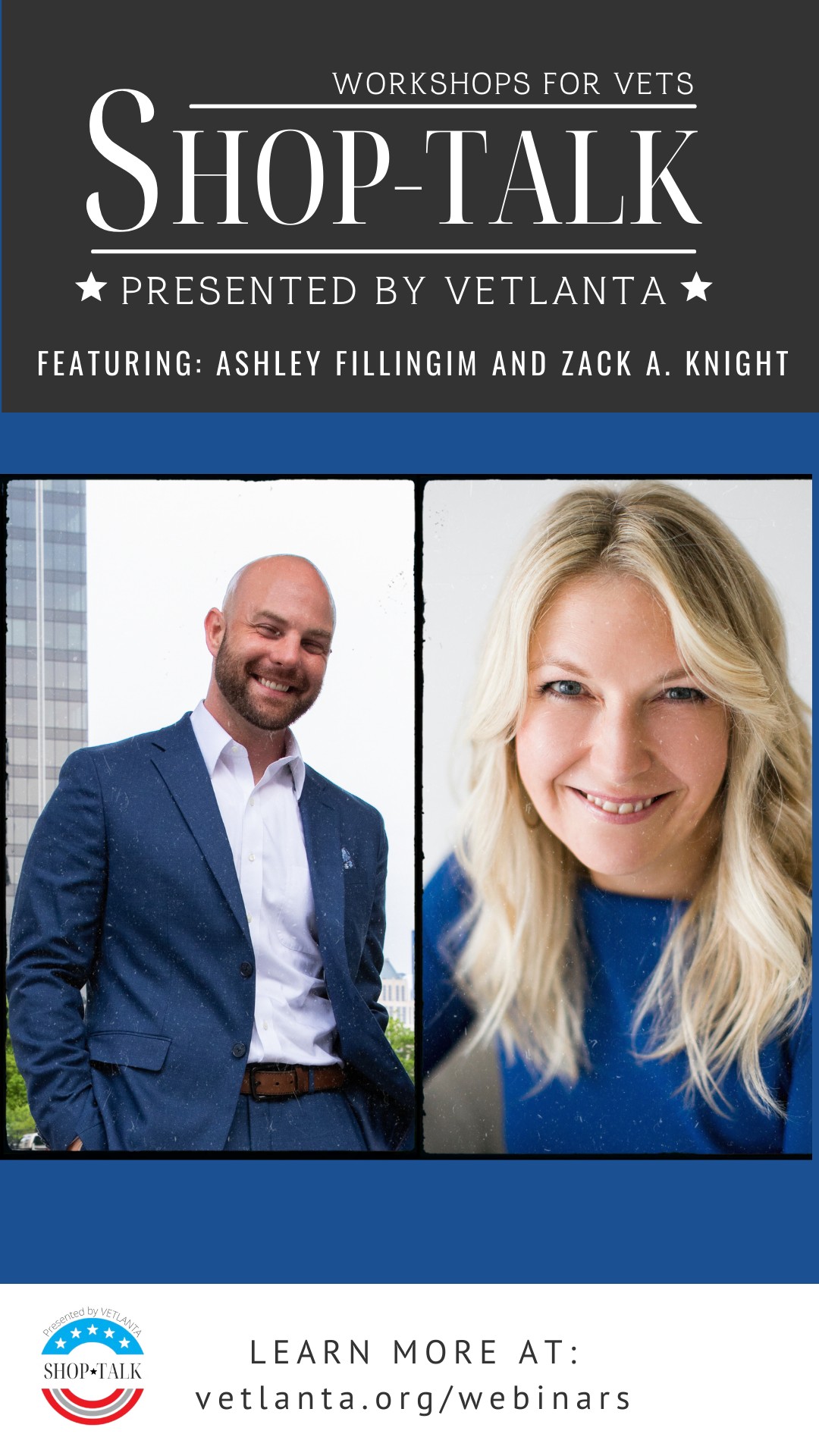
Awesome – so before we get into the rest of our questions, can you briefly introduce yourself to our readers.
Overall, I am a business owner driven with passion to succeed and to build a legacy that last beyond my time. But what does that actually look like? It can be really difficult for us to define that for ourselves. I currently own and operate 7 businesses, which includes two non-profits, my passion and purpose partners. And that’s how I view success and legacy, aligning yourself with a passion and a purpose, especially as a veteran.
My leading company is ATLVets, Advancing the Line for Veterans, where we accomplish small projects for veteran business owners that truly Advance the Line. I want to make sure we aren’t just getting passed along the line anymore and that we are truly moving forward. What’s great about this endeavor specifically is that it allows me to combine my experience as a CEO, a fractional COO and my passion, helping those who can’t help themselves, into one aligned purpose… Advancing the Line.
Several of my other companies are supporting this endeavor and it truly makes me see how alignment with your passion and purpose and business can help bring happiness and your own recognition of success to the forefront. The biggest aspect of this is my media relations company, Knightly Productions, also known to many as BATL, Be a Tactical Leader. Through that organization, we are implementing the tactics needed to build and grow businesses and veteran owned businesses in Atlanta.
What do you think helped you build your reputation within your market?
For me it is all about the willingness to step in front of the camera and be in the limelight. As a former police officer and Army veteran, we are taught and trained to not be seen, which as business owners can obviously be detrimental. So pushing myself to be seen more and making sure people know what I’m working on has been vital.
I’ve been able to accomplish this through networking, my podcast (The Tactical Leader), and business marketing in general. But I will say, the most powerful aspect of this has been to create my own stage. Whether that’s virtually like I did initially, or by creating monthly event which is what I’m doing more of now, having a stage where you are an authority in your field is POWERFUL. Beyond that, it allows you to link and network with other people that want to be on stage but might not have their own. Go out and create your stage!
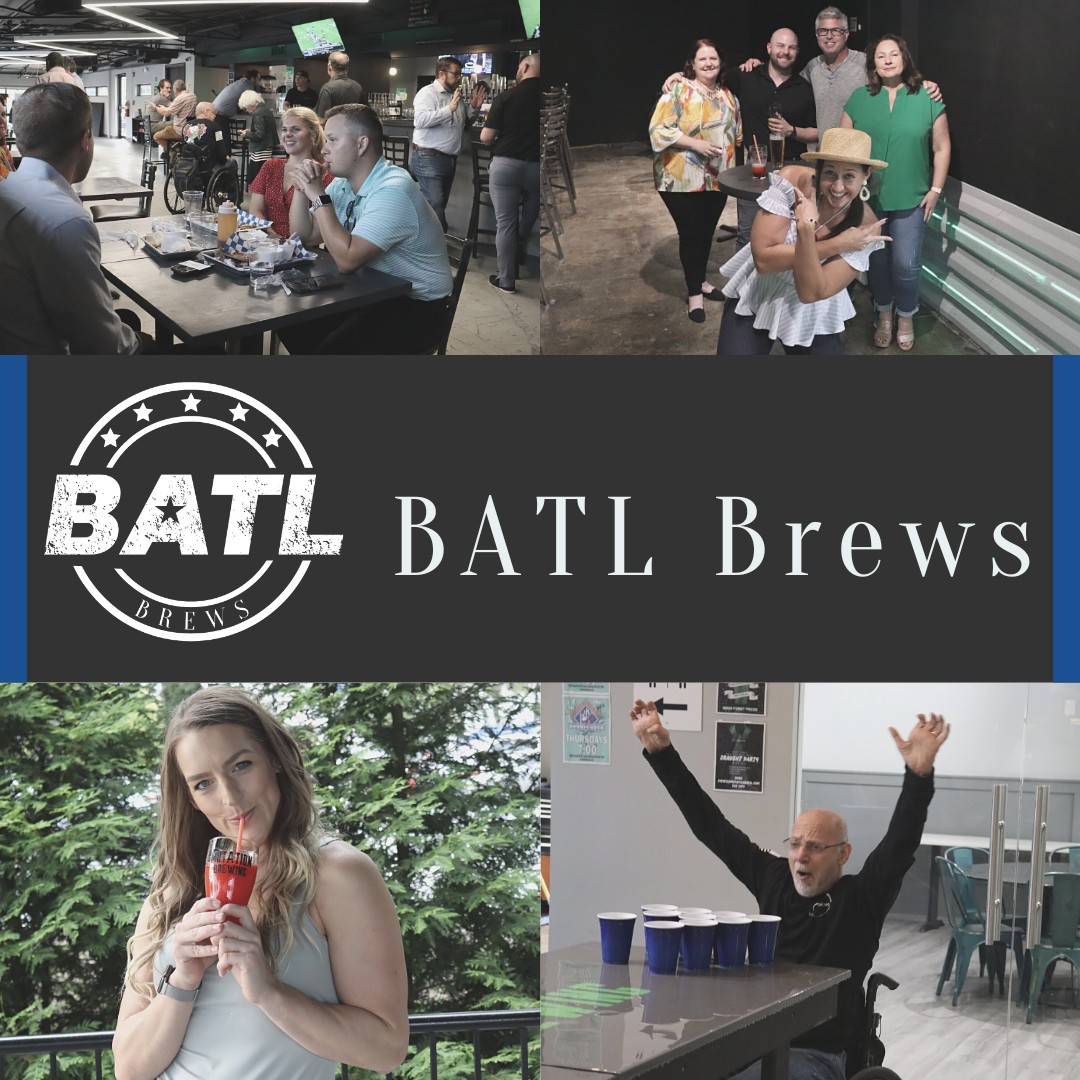
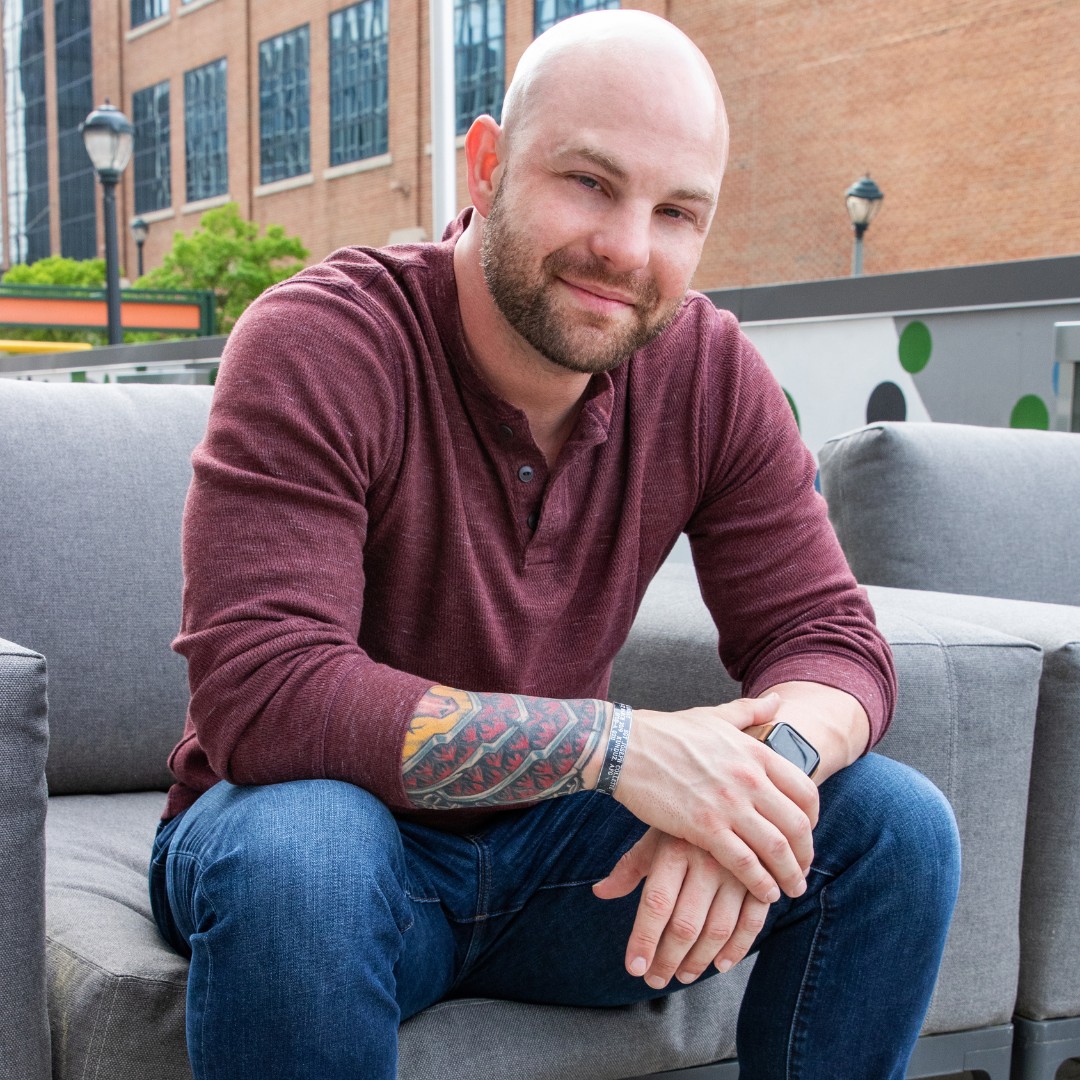

Have any books or other resources had a big impact on you?
There have been so many. I would say my own podcast has been one of these, mainly because of the interviewees I’ve had on my show. It has been an incredible resource of knowledge to speak with some amazing and powerful leaders in many different industries.
The most talked about book that I reference is Jocko Willink and Lief Babin’s ‘Extreme Ownership’ and ‘The Dichotomy of Leadership.’ I would not read one without also reading the other and in that order specifically. These two books focus on creating a level of personal accountability and taking ownership and then delve into the dichotomy of also maintaining accountability around you. This can be vital in the small business world with employees and team members. Recognize one bad apple for a small business owner can bankrupt you. So start early and stay often with accountability for yourself and your team.
Contact Info:
- Website: zackaknight.com
- Instagram: @zack_a_knight
- Facebook: https://www.facebook.com/ZackAKnight14/
- Linkedin: https://www.linkedin.com/in/zackaknight/
- Other: beatacticalleader.com


